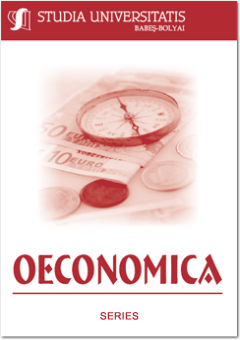THE EFFECT OF EXCHANGE RATE MOVEMENTS AND ECONOMIC GROWTH ON JOB CREATION
THE EFFECT OF EXCHANGE RATE MOVEMENTS AND ECONOMIC GROWTH ON JOB CREATION
Author(s): Chama Chipeta, Daniel Francois Meyer, Paul-Francois MuzindutsiSubject(s): Economy
Published by: Studia Universitatis Babes-Bolyai
Keywords: Economic Growth (GDP); Employment; Exchange Rate; Job Creation; South Africa.
Summary/Abstract: Job creation is at the centre of economic development and remains a source of sustenance for social and human relations. The creation of a job-enabling economic environment is imperative in promoting social and economic cohesiveness in the macro and microeconomic environment. Any shocks to the economy, particularly those of exchange rate shocks and changes in economic growth, may negatively affect the labour market and job creation. This study made use of quarterly observations, from the first quarter of 1995 to the fourth quarter of 2015, to investigate the effect of the real exchange rate and economic growth on South Africa’s employment status. South Africa, a developing country, was selected as a case study due to its high unemployment rate that is still increasing. The Vector Autoregressive (VAR) model and multivariate co-integration techniques were used in assessing the impact and responsiveness of employment to the real exchange rate and real economic growth in South Africa. Findings of this study revealed that employment responds positively to economic growth and negatively to the real exchange rate in the long-run. The short-run displays a positive relationship between real economic growth and employment, while the relationship between employment and the real exchange rate is also negative. However, the effect of economic growth in creating jobs is not significant enough in stimulating job creation in South Africa, as indicated by results in variance decomposition. Movements in the exchange rate exerted a significant short and long-run negative effect on employment dynamics; implying that a depreciation of the rand against the U.S. dollar is associated with decrease in overall employment. Exchange rate stability is thus important for economic growth and job creation in South Africa. The study provided further recommendations on promoting job creation in South Africa and other developing countries.
Journal: Studia Universitatis Babes Bolyai - Oeconomica
- Issue Year: 62/2017
- Issue No: 2
- Page Range: 20-41
- Page Count: 22
- Language: English

